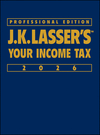Having a Baby: New Tax Opportunities
When you have a new baby, there are a number of special tax rules that apply to you. While they probably won’t offset the cost of caring for your new family member, they will provide some tax relief.
Dependency Exemption
You can claim a dependency exemption for a child born this year. You do not have to prorate the exemption amount ($3,650). A full exemption applies even to a child born on December 31.
You must have a Social Security number of the child (usually you complete the paperwork for it while in the hospital). If you did not already complete the paperwork, then complete Form SS-5, which you can do online at www.ssa.gov/online/ss-5.html.
An exemption can be claimed for a legally adopted child or a child legally placed with you for adoption.
Baby Gifts
Gifts of clothing, savings bonds, or cash in any amount are tax free.
Medical Expenses
The costs of childbirth and baby care that are not covered by insurance are deductible medical expenses. To be deductible, total medical expenses in 2010 must exceed 7.5% of adjusted gross income.
However, no deduction can be claimed for diapers or infant formula. A deduction for infant formula was even denied where the mother could not nurse because she had had a double mastectomy.
Child Tax Credit
You may claim a tax credit of up to $1,000 for your new baby. The credit, however, phases out for those with modified adjusted gross income over $110,000 on a joint return ($75,000 for a single parent).
You can take a credit for an adopted child placed with you by an authorized adoption agency, even if the adoption is not final by the end of the year.
Dependent Care Credit
If you return to work after the birth of a child, you may qualify for a credit for child care expenses. The credit covers the costs of a nanny or other in-home care as well as the costs of child care facilities (including travel to and from the facilities). The credit ranges from 20% to 35% of eligible costs, depending on your adjusted gross income. You can base the credit on eligible costs up to $3,000 for one qualifying dependent, or $6,000 for two or more qualifying dependents.
You can take the credit if you pay a relative to care for your child. However, no credit can be claimed for any relative who is your dependent as well as for your child under age 19, whether or not your dependent.
If your employer pays dependent care costs, up to $5,000 is tax free. If your employer has a flexible spending account option for dependent care costs, you can set aside up to $5,000 of your wages to be used for child care costs. You aren’t taxed on the amount you contribute to the FSA, but you can’t recoup any amounts that are not used up throughout the year. Usually, enrollment for the following year begins in November of the current year.
Earned Income Credit
Low-income earners can claim a fully refundable tax credit. Different credit limits apply for one dependent, two dependents, three or more dependents, or no dependents, so the addition of a baby may increase your credit amount.
Education Savings
It’s never too early to start thinking about higher education for a child. The earlier you start to save, the more you can accumulate to pay for college costs. You can contribute to a 529 plan (either a savings plan or a prepaid tuition plan). Or you can buy U.S. savings bonds in your own name that you will later be able to redeem to pay for higher education costs. If you income is below set levels when you redeem the bonds, then the interest will be tax free.
Fiscal year
A 12-month period ending on the last day of any month other than December. Partnerships, S corporations, and personal service corporations are limited in their choice of fiscal years and face special restrictions.



